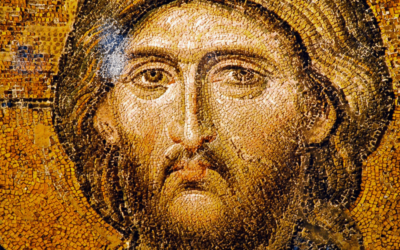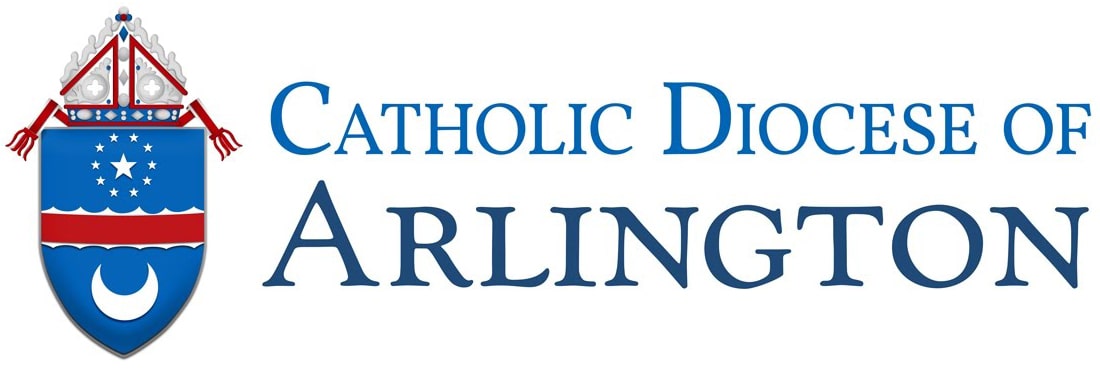
Dealing with difficult students is one of the most challenging aspects of being a Catholic teacher. In the vocation of Catholic education there will always be students who test us. In today’s episode I’m going to share some wisdom from 2500 years ago and how we can learn to handle even the most difficult students in a new way.
Socrates and Students who Terrorise their Teachers
Well, hey everybody! Jonathan Doyle with you as always for The Catholic Teacher Daily Podcast. Hope you’re doing well wherever you are in the world. Thank you to so many of you for your good wishes and prayers. As many of you know, I had a very bad accident recently. What a long road it is! So, I had occupational therapy yesterday, was starting to work on the injuries and wow… I don’t want to massively over-spiritualize it, but it really is a kind of journey with Jesus in making sense of a pretty difficult circumstance. But, look, I just want us all to understand that when we go through these difficult times, we’re never alone. We can feel that way, but his presence shows up for us in so many ways. Like, I don’t necessarily get a burning bush in front of me with a voice speaking out of it, telling me that everything’s going to be okay… that’d be nice… but I do get just incredible people and supporting me in great consolation, just from prayer and from scripture.
So, I just want to encourage you that whenever you’re going through a difficult time, whether that’s in your teaching or in your career or your relationships, just… you’re never alone. You’re just never abandoned. So press in in the hard times, as I’m trying to do right now, and thank you to you all for your prayers, right? This is going to be a quick, short episode.
I posted something yesterday that was really popular and it’s a bit of fun, but it’s useful for us to understand. I shared a quote from Socrates, the famous, of course, Greek philosopher, one of the great… one of the first major philosophers. I mean, Thales was the first, and of course we’ve got Socrates and Aristotle and Plato.
But I shared this yesterday. It’s really good. The reason I share it is because… let me give you some context. You know how we’ve all got that difficult student? Often in live seminars or said in people. Think of that one student that you know, that walks up every day and somehow manages to press that big red button on your forehead, you know the button that just absolutely triggers you? And they’ve just got a gift, and if you teach for long enough… and I know some of you younger teachers listening will be like, “No, I love all my students. They’re all perfect.” Give it time, all right? Give it time. There’s always going to be one or two, and of course there is, right, because in any classroom of 20 to 30 students, give or take, we’re humans. We are always going to find some people that we really get on well with and enjoy their company, and then we’re going to find some that make that a little bit less so. You know the story.
So let me share this with you, right? So this is from Socrates; now, this is in 470 BC, so that’s about two and a half thousand years ago; two and half thousand years ago. Listen to these words. He says this: “The children now love luxury. They have bad manners, contempt for authority. They show disrespect for elders and love chatter in places of exercise. Children are now tyrants, not the servants of their households. They no longer rise when elders enter the room. They contradict their parents, chatter before company, gobble up dainties at the table, cross their legs, and tyrannize their teachers.” Tyrannize their teachers.
So friends, I love this. This was two and a half thousand years ago, and Socrates is pointing out that way back in ancient Athens, children could be pretty difficult at times. And he just spells it all out, tyrannizing their teachers. So, I think we have this wonderful view, don’t we, that maybe in ancient Greece or Victorian England, that students were just absolutely perfect and did exactly what they were told, and it’s not the case.
So, listen, a couple of thoughts. One is… you know, there’s a vast amount of stuff, isn’t there on behavioral management. But I think you really can never go past a genuine desire for good to happen to your students. Let me give you something on that.
So, when I did my second Masters program at the Pontifical Institute, one of the things that really was transformative for me was a symposium that we did on the concept of love. Now, love in our culture is highly sentimentalized, isn’t it? We think primarily of romantic love. We think of love as a feeling. But what we learned in this symposium was so transformative because it took us to the very deep roots of the understanding of love in sort of philosophy over many centuries.
And the deeper understanding of love is the desire to will the good of the other. It’s a very powerful concept. So we’ve sentimentalized love, we think of love as a feeling, but love is primarily an action. It’s a desire that good would happen to the other person. So we can say that we can love our students, which means what? That we can desire as a default setting that good things will happen to them. So, when we deal with difficult students, we’ve got to pray for this grace of a default setting of love.
Now, that doesn’t mean that you have to like your students. Now, hopefully you do, at least the vast majority of them. But again, we’re human. We’re not going to like everybody, and the Bible doesn’t tell us to. And the magisterium of the church, it invites us to care for people, to be on good terms, to sort of… St. Paul would talk about being all things to all people so we can win them to Christ, but there’s no kind of… there’s no sin in finding some people challenging to love… to like, at least… but we can love everybody, at least to the degree that we can desire that good happens to them.
So I don’t know if that sounds too abstract for you. I’ve found over the years that as you move into this, this default setting of love, it’s, “Yes, you drive me crazy. Yes, I don’t like what you’re doing, but I love you. I desire that you would grow and that good things would happen to you.” Okay? So, let’s just keep that in mind as a default setting.
Now, all of this stuff is a question of grace. Why? Because if we just had to strive through in our own strength, it would be what we call Neo-Pelagianism… I often teach about this in teacher seminars as well, I love it. So Pelagius was a monk around the time of Augustine who believed that when Christ died on the cross, he had accomplished everything necessary for us to live perfectly. So, now, we understand in Catholic teaching that Christ’s death on the cross was salvific, right? It opened the way to heaven for us. It healed our sins, but we still have to work. We still have to cooperate with grace; whereas Pelagius was like, “No, it’s all there. You’ve just got to strive and just work really hard.”
And see, that’s the thing, isn’t it? We can go into a classroom thinking, “Well, I’ve just got to work harder, try harder, strive harder.” But the beauty of our Catholic faith is that, yes, we do need to cooperate with grace. You know, St. Augustine beautifully said, “He who made you without your cooperation will not save you without your cooperation.” So, there’s this beautiful partnership happening. So, as we face these difficult students that Socrates talked about, we’re actually in a partnership with grace. We don’t have to summon up feelings in ourselves that we can’t find. We have to ask the Holy Spirit. We have to ask the Father. We have to ask Jesus to give us what we often don’t have in ourselves.
That’s the first part, is that we act the best we can in our own natural skills and abilities. We ask for grace to elevate those abilities and to give us love and kindness and a desire for good to happen to our students. And then, finally, we pray for our students. So when they’re difficult, when they’re tyrannizing their teachers, one of the things we have to do is really pray for them. And I have found over many, many years, that if you really begin to pray for someone, it is very difficult to dislike them. It’s not impossible, but it’s very difficult. If you find that you get up each day and you start to really pray into the lives of the experiences of several key students, you will find it increasingly difficult to be angry at them, to be frustrated by them.
You will develop the heart of the Father. You’ll develop a heart of love towards them. So, that’s it. Do not be afraid if you find things difficult at times. Do not be afraid if your students occasionally drive you crazy, because they were doing it to Socrates, and he was really smart. So I think if there was a behavioral management trick, he would have figured it out. So don’t be hard on ourselves. Kids are always going to push our buttons at times. All we need to do is have a default setting of love, pray for the grace to elevate our natural abilities, and then pray for our students, okay? That’s all I wanted to share with you. Hope that’s useful.
Do me a favor, grab your phone. If you’re on Instagram, come and say hi to me. I am on jonathandoyle47. If you’ve got Instagram, jonathandoyle47. I know some of you listening go, “Well, I don’t use that social media stuff.” That’s totally fine. I understand. I only use it because I just try and bring a lot of goodness through it. I really do. There’s so much terrible stuff there that I try and make sure I publish multiple times a day with really encouraging content.
So Instagram, jonathandoyle47, and Twitter… if you’re on Twitter at all, I am @beingcatholic1 , or just search for @beingcatholic1 . Come and say hi on Twitter. I’d love you to follow me there. I just keep putting out great stuff all day, I hope. So, I’m there. Everything else is on the website BeingCatholic.com.au
Make sure if you get to that website, you check out the Going Deeper program. You’ll see a tab that says Going Deeper. Check that out because we’re doing a free trial, so it’s a three week free trial of this amazing online program that we do.
Okay, that’s it. I’m going to pray for you. Father, every teacher that’s listening right now, I ask for your blessing upon them. I ask you to convict them of your joy over them, that how much you value what they do, and to just convict them that what they’re doing is significant, what they’re doing is praiseworthy, what they’re doing is important in the world. Jesus, I ask you to be their Lord, to walk with them in Holy Spirit. Would you just come into their lives and empower them, guide them, direct them all through this beautiful vocation you’ve given them?
Father, I pray for their families, for their kids, for their relationships. Just cover them. Bless them, Father. I trust them all to your immaculate heart. In Jesus’ name. Amen. Everybody, this has been The Catholic Teacher Daily Podcast. My name’s Jonathan Doyle, and I’m going to have another message for you tomorrow.













0 Comments